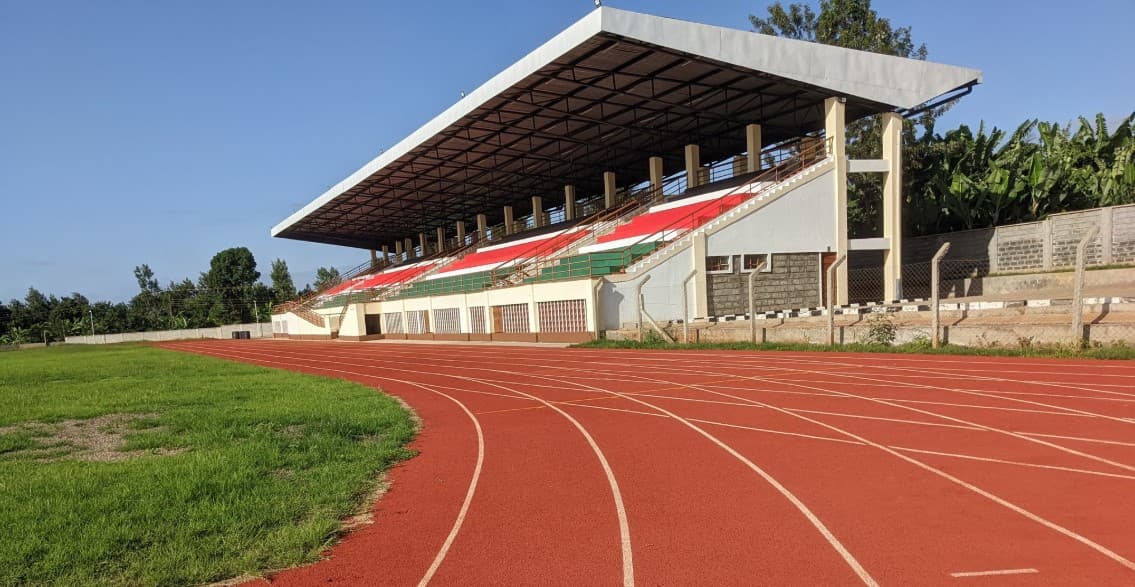We're loading the full news article for you. This includes the article content, images, author information, and related articles.
Sports Kenya faces intense scrutiny from Members of Parliament over the expenditure of billions of shillings on incomplete and abandoned stadium projects, raising concerns about accountability and value for taxpayer money.

The National Assembly's Public Investments Committee on Social Services, Administration and Agriculture (PIC-SSAA) on Wednesday, October 1, 2025, questioned Sports Kenya management regarding billions of shillings allocated to stalled and uncompleted stadium projects. The audit queries, which date back to the 2014/2015 and 2015/2016 financial years, highlighted significant financial mismanagement and lack of due diligence.
During the session, chaired by Vice-Chairperson Caleb Amisi, who is also the Saboti MP, Sports Kenya's Acting Director General, Gabriel Komora, and his senior management were pressed on expenditures for projects that either never materialised or remain incomplete. This includes three proposed national stadiums in Nairobi, Kisumu, and Eldoret, which were estimated to cost KSh 42 billion.
A key point of contention was the expenditure of KSh 156.6 million on consultancy and architectural fees for these three proposed stadiums, despite Sports Kenya not possessing land titles for the project sites. Records show KSh 99.6 million was spent on feasibility studies and KSh 57 million on architectural and project management services. MP Amisi questioned the justification for such spending without securing formal land ownership.
Komora acknowledged that consultancy work proceeded without secured title deeds, stating that while sites had been identified, the necessary documents were unavailable at the time. He cited the proposed Nairobi site along Ngong Road as an example. The audit further revealed that Sports Kenya lacks proper land ownership documents for existing national assets, including Kasarani National Stadium and the Moi International Sports Centre. Komora informed the Committee that Sports Kenya is pursuing titles through the National Land Commission, but faces challenges from encroachment and historical land issues.
The committee also scrutinised the significant cost overruns on existing projects. The Kipchoge Keino Stadium in Eldoret, for instance, saw its contract sum escalate from an initial KSh 109.7 million to KSh 355.1 million, an increase of over 200 percent. MP Martin Owino questioned why essential elements contributing to this massive cost increase were not foreseen in the original contract.
Further concerns were raised regarding the irregular handling of statutory deductions. The Auditor-General flagged that Sports Kenya withheld KSh 16.3 million in PAYE and KSh 96,388 in pension contributions without remitting them to the relevant authorities. Management attributed this lapse to inadequate funds, claiming difficulties in balancing net salaries and deductions.
Analysts suggest these revelations could significantly influence public debate and policy execution, with calls for greater clarity on project timelines, costs, and safeguards. The committee warned that continued stalling of projects risks rendering funds allocated under Vision 2030 and the Sports Act, 2013, as wasted investments.
The session became tense, with committee members reminding Sports Kenya's head of finance, Fredrick Mwema, of the judicial nature of the proceedings and the potential for invoking standing orders or subpoenas for false information. The committee resolved to conduct physical inspections of disputed sites, including Kipchoge Keino Stadium, and demanded a comprehensive report on all proposed stadia in Kenya from 2015 to date.
The ongoing parliamentary probe is expected to intensify, with a focus on accountability for the alleged mismanagement of public funds. The physical inspections of project sites and the demand for comprehensive reports indicate a thorough investigation into the status of stadium projects across the country. The outcome could lead to significant policy changes in project management and financial oversight within state corporations.
Keep the conversation in one place—threads here stay linked to the story and in the forums.
Sign in to start a discussion
Start a conversation about this story and keep it linked here.
Other hot threads
E-sports and Gaming Community in Kenya
Active 9 months ago
The Role of Technology in Modern Agriculture (AgriTech)
Active 9 months ago
Popular Recreational Activities Across Counties
Active 9 months ago
Investing in Youth Sports Development Programs
Active 9 months ago
Key figures and persons of interest featured in this article